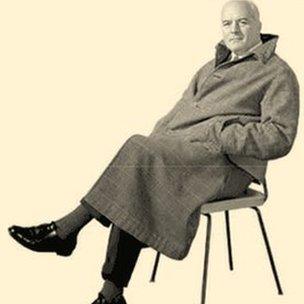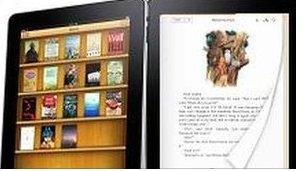Picking up Penguins for 75 years
- Published

Sir Allen Lane brought a new way of thinking to the publishing world
Tales of the man who founded Penguin 75 years ago, conjure up the image of an eccentric character from one of the publisher's books.
Sir Allen Lane was the man who used a fairground slide to drop deliveries to his company (then based in a crypt) and came up with the Penguincubator - a vending machine for the firm's books to be installed on train platforms.
Stories differ as to whether this machine was ever made, with some reports suggesting at least one machine was installed at Charing Cross Station in London.
But as current Penguin chief executive and chairman John Makinson chats about the brand, he touts Sir Allen as the man who changed the reading habits of a nation.
Distinctive
"When Allen Lane founded Penguin in 1935 he had a pretty simple, but pretty radical idea: make great literature available to everyone at an affordable price and for it to appeal not just to the wallet, but to literary taste and the eye, with beautifully designed jackets and style," says Mr Makinson.
"Although they were not the first paperbacks, they were truly innovative and captured the imagination."
In fact, the company's distinctive branding has captured the heart of the public so much it is now available on items ranging from deck chairs to mugs.
The definitive branding of a "dignified but flippant" symbol - a penguin - was suggested by Lane's secretary and an office junior was dispatched to London Zoo's penguin house to come up with some ideas.
The design from the then 21-year-old Edward Young is a marketer's dream today.
Brand value
"Merchandising, if you have a brand like Penguin, is marvellous. It's a win-win and generates revenue," says Mr Makinson.
"We have to be careful not to compromise the brand, there's certain things we wouldn't put it on, but if you're careful, it reinforces Penguin as one of the only British brands that the public really does identify."
And as Penguin has spread its wings overseas, the black and white symbol has lost none of its shine.
"It's a magical name," says Mr Makinson. "In China, people literally stroke the business card, and that magnetic appeal seems to be universal wherever we go.
"We're about to launch Penguin Classics in Brazil and we have absolutely no history in Brazil at all. We sell a few books to tourists, yet the launch of Penguin Classics in Brazil has become an enormous media event."
And media events - albeit controversial ones - are nothing new to Penguin or its founder.
The publisher was catapulted into the headlines in the 1960s when Lane decided to print DH Lawrence's Lady Chatterley's Lover in full as a Penguin Classic.
Not only did the ensuing obscenity trial - which Penguin won - mark a turning point in British censorship laws, but it also led to two million copies of the novel flying off the shelves within six weeks.
Penguin is still grabbing headlines, with controversial books such as Salman Rushdie's the Satanic Verses in its catalogue - and with its decision to publish Deborah Lipstadt's book Denying the Holocaust, which accused David Irving of Holocaust denial.
Mr Irving sued for libel, but lost the case in 2000. The widely publicised trial left the controversial historian bankrupt, as it landed him with a £2m legal bill.
Books and bytes
But while Penguin will forever be associated with the orange jacket and bird logo, where will it go in the future?
Well, it has certainly not abandoned its innovative edge and is still embracing new technologies.
Yet Mr Makinson is "very mindful" of any comparisons between the publishing world and the music industry, which has seen a steady decline in the sale of physical CDs.
"The two are very different in an important number of ways: people don't want to buy books in chapters, unlike singles, so we shouldn't suffer the fate of the album," he adds.
"There's also nothing cool about owning enormous quantities of e-books," he says, while admitting he has a number of e-readers at home that come in handy for when he is on his travels, as they take up so little room.

Penguin believes keeping children interested in books - through innovation and technology - is key
And for the readers of the future, digital books will play a vital role as children today become ever more familiar with the world of technology.
"For the children's market, the iPad is fantastic. On the iPad in the US, there was only one book pre-loaded and that was our edition of Winnie The Pooh," Mr Makinson adds.
Adopting future technology is a key plank of the group's strategy, especially with the boss predicting e-books will begin to overtake physical books, something he says has happened in the US "in a big way".
But above all, he says the key to the business is that the "public still has a love affair with books, the physical product".
"It's an emotional relationship in a way that we don't have any longer with the CD.
"We've got to continue to try to emphasise the desirability of a physical book - the design, quality of printing, inventiveness in children's books and strong design culture - and we need to keep investing in that."
And from a man who has just confessed to owning his own small independent book shop in eastern England, he should know what the buying public wants.
Your comments:
- Published29 July 2010